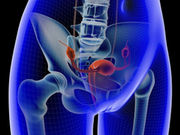Low antimüllerian hormone, high follicle-stimulating hormone not linked to infertility in women 30-44
TUESDAY, Oct. 10, 2017 (HealthDay News) — Biomarkers indicating diminished ovarian reserve versus normal ovarian reserve are not associated with reduced fertility among women aged 30 to 44 years without a history of infertility who have been trying to conceive for three months or less, according to a study published online Oct. 10 in the Journal of the American Medical Association.
Anne Z. Steiner, M.D., M.P.H., from the University of North Carolina in Chapel Hill, and colleagues conducted a prospective time-to-pregnancy cohort study involving 750 women aged 30 to 44 years without a history of infertility who had been trying to conceive for three months or less.
The researchers found that the predicted probability of conceiving was not significantly lower for women with low antimüllerian hormone values compared to women with normal values by six cycles of attempt (65 versus 62 percent) or by 12 cycles of attempt (84 versus 75 percent) after adjustment for confounding variables. The predicted probability of conceiving was not significantly different for women with high serum follicle-stimulating hormone versus women with normal values after six cycles of attempt (63 versus 62 percent) or after 12 cycles of attempt (82 versus 75 percent); similar results were seen for high urinary follicle-stimulating hormone values.
“These findings do not support the use of urinary or blood follicle-stimulating hormone tests or antimüllerian hormone levels to assess natural fertility for women with these characteristics,” the authors write.
One author disclosed financial ties to the pharmaceutical industry.
Copyright © 2017 HealthDay. All rights reserved.








